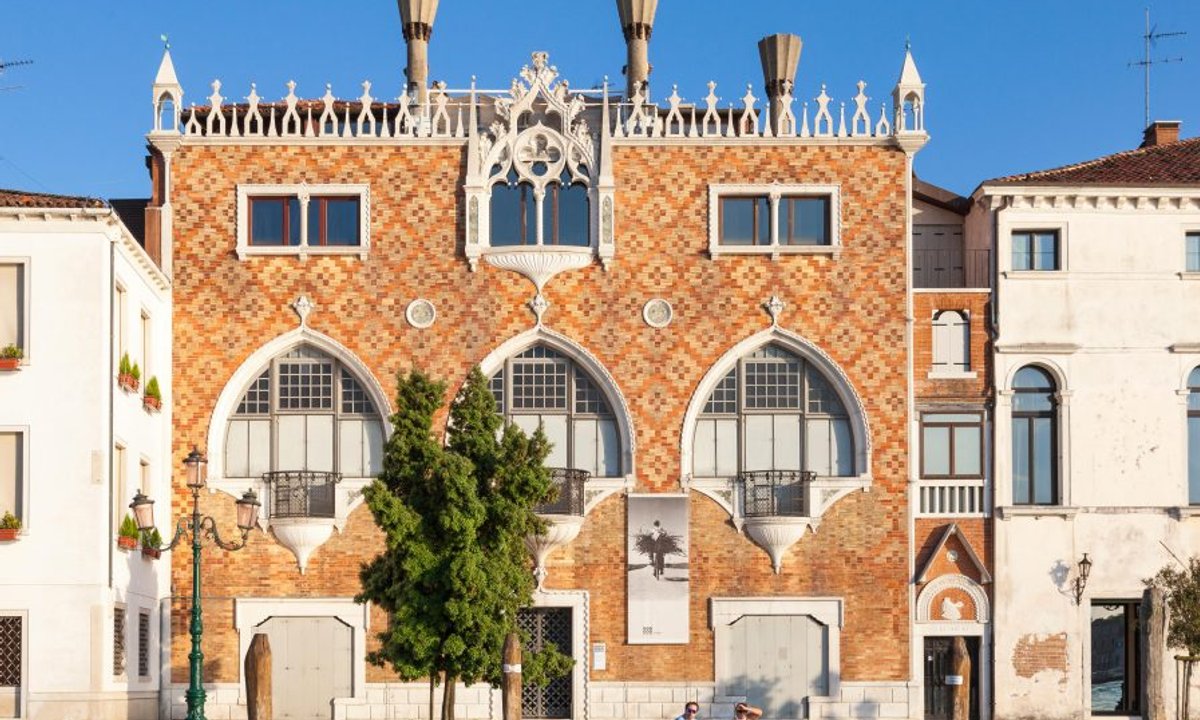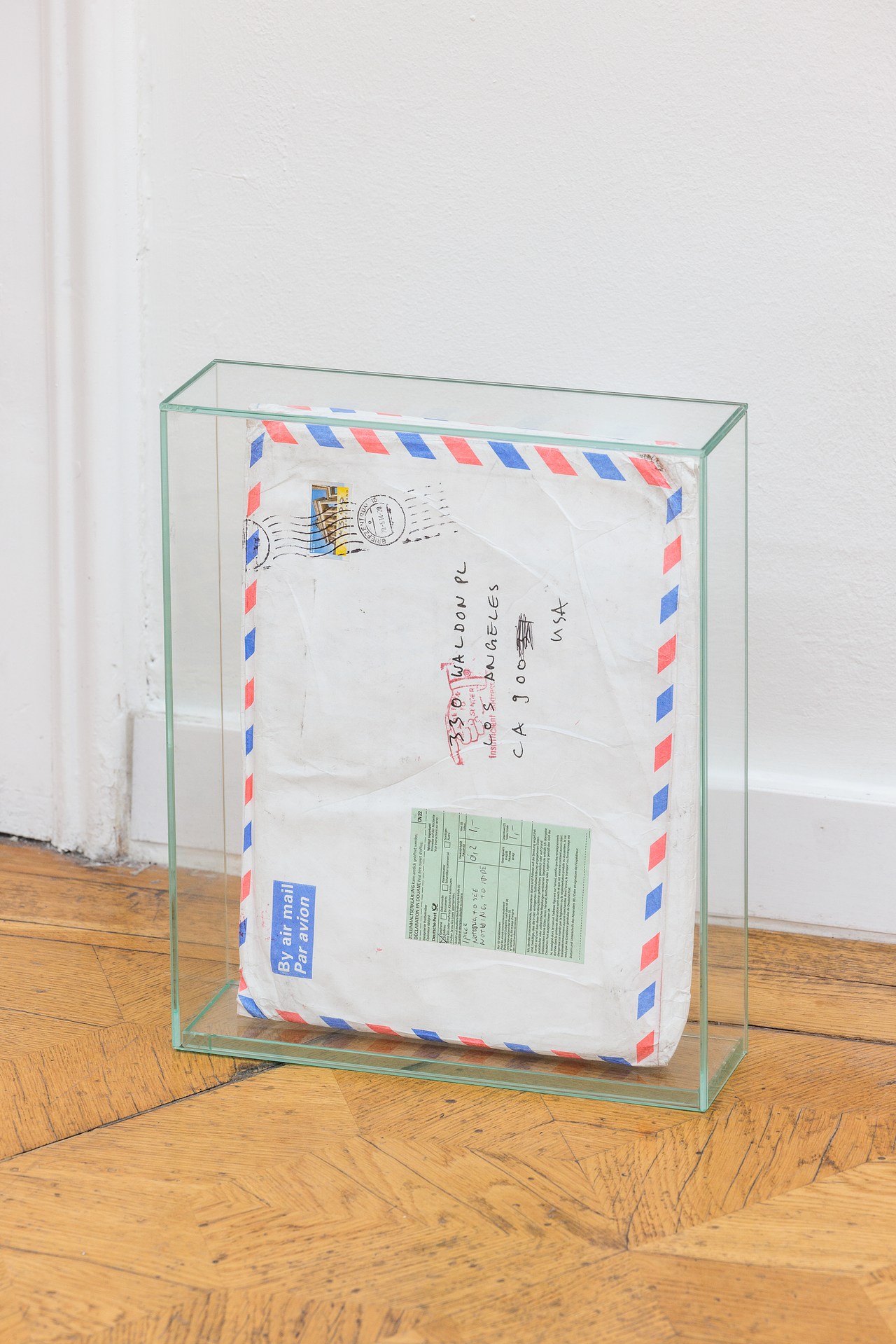Dazzlemen
2008 - Painting (Painting)
Tala Madani
Madani works on a small scale and a large scale. This work is from a series of small paintings called Dazzle Men that take as their starting point the Dazzle patterns used by artists to camouflage ships during the First World War. Dazzle camouflage was designed to confuse the aim of U boat commanders. Its unstable, brightly coloured distortions were closely allied to modernist painting and indeed formed the subject of a memorable series of woodcuts and a major painting by the British Vorticisit Edward Wadsworth. In Madani’s painting Middle Eastern looking men take as their model an image of a dazzleship for the purpose of self-disguise. Applying paint to their bodies they adopt the strategy of maquillage that is essentially feminising. Madani thereby satirises the overly masculine society these men inhabit. While some have applied only small amounts highlighting their breasts, others have applied stripes recalling prison outfits. These men are trapped in their own world, prisoners of the stereotyping that grows out of education, religion and culture. In conversation with Doug McClemont Madani stated: ‘I’m interested in the behaviour of the masses. Creating icons, figures and then having later on to destroy. The creation of icons, which then inevitably are destroyed because the icon becomes corrupt, or something. To me, that’s very religious behaviour, needing to put something up on a pedestal. And the mass behavioral tendency of later on of being almost inevitably oppressed by it somehow. Having to bring it down. In a way painting is poking fun at religious behaviour. The masses can behave ridiculously in many circumstances.’
Madani’s paintings have a caricatural quality that suggest a satirical intention. She only paints images of men. This came about initially because she ‘didn’t want to deal with the question of the veil, and I didn’t particularly want to sexualise the figures with perked up breasts, so ultimately I was left with men.’ Since making that statement she has expressed an interest in depicting spaces ‘designated for men only’. Madani’s work can be interpreted as a comment on an overbearingly patriarchal society, whether in Iran or indeed any Western country. Her cartoony paintings expose ethnic and gender stereotypes with a lightness of touch that belies their punch. The painterly nature of Madani’s approach has led her to make films composed of freeze frame shots of paintings that she changes from shot to shot. Born in 1981, Tala Madani is a young Iranian artist who has lived outside Iran since the age of 14. She currently lives and works in New York and Amsterdam.
Colors:
Related works sharing similar palette

© » ARTS EQUATOR
An orphaned artist paints for support (via The Phnom Penh Post) | ArtsEquator Thinking and Talking about Arts and Culture in Southeast Asia ArtsEquator Radar July 5, 2018 Self-taught artist Yi Kakada has spent the past six years demonstrating his skills by painting on walls, fences and other public areas, often without getting paid...
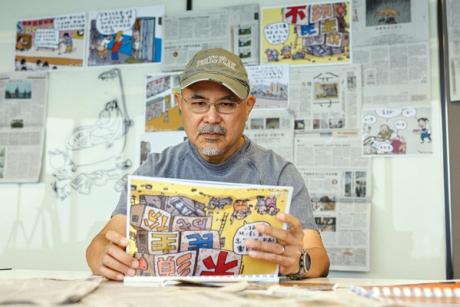
© » THEARTNEWSPER
Those who stay: the Hong Kong artists fighting for a brighter future Art market Museums & heritage Exhibitions Books Podcasts Columns Technology Adventures with Van Gogh Search Search Hong Kong analysis Those who stay: the Hong Kong artists fighting for a brighter future Despite governmental intimidation of arts entities, the high cost of living and the lure of better opportunities abroad, many artists are choosing to remain in the city Lisa Movius 5 February 2024 Share The satirical cartoonist Wong Kei-kwan, who uses the pen name Zunzi, had his comic strip in the Hong Kong newspaper Ming Pao cancelled following government pressure, but he continues to live in the city Photo: Reuters/Tyrone Siu Some call it the great exodus: the family company owners, the bankers and the expatriate businesspeople departing Hong Kong in droves during and since the Covid-19 years...

© » KADIST
With sounds drawn upon a wide range of traditions and conventions: 1990s boy bands Vocal and instrumental experimental music, “Quiet Storm” American R&B Free improvisation Black American gospel music Pop songs by conceptual artists Steffani Jemison, in converstion with Mike Ladd, an American hip hop artist from Boston American artist Steffani Jemison animates historical and contemporary cultural forms—vocabularies, languages, images, and movements...

© » ART & OBJECT
Plan to Restore Pyramid in Granite Draws Criticism | Art & Object Skip to main content Subscribe to our free e-letter! Webform Your Email Address Role Art Collector/Enthusiast Artist Art World Professional Academic Country USA Afghanistan Albania Algeria American Samoa Andorra Angola Anguilla Antarctica Antigua & Barbuda Argentina Armenia Aruba Ascension Island Australia Austria Azerbaijan Bahamas Bahrain Bangladesh Barbados Belarus Belgium Belize Benin Bermuda Bhutan Bolivia Bosnia & Herzegovina Botswana Bouvet Island Brazil British Indian Ocean Territory British Virgin Islands Brunei Bulgaria Burkina Faso Burundi Cambodia Cameroon Canada Canary Islands Cape Verde Caribbean Netherlands Cayman Islands Central African Republic Ceuta & Melilla Chad Chile China Christmas Island Clipperton Island Cocos (Keeling) Islands Colombia Comoros Congo - Brazzaville Congo - Kinshasa Cook Islands Costa Rica Croatia Cuba Curaçao Cyprus Czechia Côte d’Ivoire Denmark Diego Garcia Djibouti Dominica Dominican Republic Ecuador Egypt El Salvador Equatorial Guinea Eritrea Estonia Eswatini Ethiopia Falkland Islands Faroe Islands Fiji Finland France French Guiana French Polynesia French Southern Territories Gabon Gambia Georgia Germany Ghana Gibraltar Greece Greenland Grenada Guadeloupe Guam Guatemala Guernsey Guinea Guinea-Bissau Guyana Haiti Heard & McDonald Islands Honduras Hong Kong SAR China Hungary Iceland India Indonesia Iran Iraq Ireland Isle of Man Israel Italy Jamaica Japan Jersey Jordan Kazakhstan Kenya Kiribati Kosovo Kuwait Kyrgyzstan Laos Latvia Lebanon Lesotho Liberia Libya Liechtenstein Lithuania Luxembourg Macao SAR China Madagascar Malawi Malaysia Maldives Mali Malta Marshall Islands Martinique Mauritania Mauritius Mayotte Mexico Micronesia Moldova Monaco Mongolia Montenegro Montserrat Morocco Mozambique Myanmar (Burma) Namibia Nauru Nepal Netherlands Netherlands Antilles New Caledonia New Zealand Nicaragua Niger Nigeria Niue Norfolk Island Northern Mariana Islands North Korea North Macedonia Norway Oman Outlying Oceania Pakistan Palau Palestinian Territories Panama Papua New Guinea Paraguay Peru Philippines Pitcairn Islands Poland Portugal Puerto Rico Qatar Romania Russia Rwanda Réunion Samoa San Marino Saudi Arabia Senegal Serbia Seychelles Sierra Leone Singapore Sint Maarten Slovakia Slovenia Solomon Islands Somalia South Africa South Georgia & South Sandwich Islands South Korea South Sudan Spain Sri Lanka St...

© » ARTS EQUATOR
Weekly Southeast Asia Radar: The relevance of "Soi Cowboy"; Malaysia's Zen Cho wins Hugo Award | ArtsEquator Thinking and Talking about Arts and Culture in Southeast Asia ArtsEquator Radar Illustration by Jared Downing | Frontier August 20, 2019 ArtsEquator’s Southeast Asia Radar features articles and posts about arts and culture in Southeast Asia, drawn from local and regional websites and publications – aggregated content from outside sources, so we are exposed to a multitude of voices in the region...
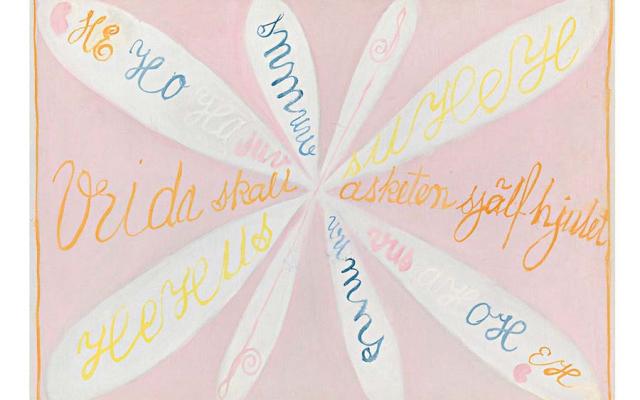
© » ART & OBJECT
Who Was Hilma af Klint? | Art & Object Skip to main content Subscribe to our free e-letter! Webform Your Email Address Role Art Collector/Enthusiast Artist Art World Professional Academic Country USA Afghanistan Albania Algeria American Samoa Andorra Angola Anguilla Antarctica Antigua & Barbuda Argentina Armenia Aruba Ascension Island Australia Austria Azerbaijan Bahamas Bahrain Bangladesh Barbados Belarus Belgium Belize Benin Bermuda Bhutan Bolivia Bosnia & Herzegovina Botswana Bouvet Island Brazil British Indian Ocean Territory British Virgin Islands Brunei Bulgaria Burkina Faso Burundi Cambodia Cameroon Canada Canary Islands Cape Verde Caribbean Netherlands Cayman Islands Central African Republic Ceuta & Melilla Chad Chile China Christmas Island Clipperton Island Cocos (Keeling) Islands Colombia Comoros Congo - Brazzaville Congo - Kinshasa Cook Islands Costa Rica Croatia Cuba Curaçao Cyprus Czechia Côte d’Ivoire Denmark Diego Garcia Djibouti Dominica Dominican Republic Ecuador Egypt El Salvador Equatorial Guinea Eritrea Estonia Eswatini Ethiopia Falkland Islands Faroe Islands Fiji Finland France French Guiana French Polynesia French Southern Territories Gabon Gambia Georgia Germany Ghana Gibraltar Greece Greenland Grenada Guadeloupe Guam Guatemala Guernsey Guinea Guinea-Bissau Guyana Haiti Heard & McDonald Islands Honduras Hong Kong SAR China Hungary Iceland India Indonesia Iran Iraq Ireland Isle of Man Israel Italy Jamaica Japan Jersey Jordan Kazakhstan Kenya Kiribati Kosovo Kuwait Kyrgyzstan Laos Latvia Lebanon Lesotho Liberia Libya Liechtenstein Lithuania Luxembourg Macao SAR China Madagascar Malawi Malaysia Maldives Mali Malta Marshall Islands Martinique Mauritania Mauritius Mayotte Mexico Micronesia Moldova Monaco Mongolia Montenegro Montserrat Morocco Mozambique Myanmar (Burma) Namibia Nauru Nepal Netherlands Netherlands Antilles New Caledonia New Zealand Nicaragua Niger Nigeria Niue Norfolk Island Northern Mariana Islands North Korea North Macedonia Norway Oman Outlying Oceania Pakistan Palau Palestinian Territories Panama Papua New Guinea Paraguay Peru Philippines Pitcairn Islands Poland Portugal Puerto Rico Qatar Romania Russia Rwanda Réunion Samoa San Marino Saudi Arabia Senegal Serbia Seychelles Sierra Leone Singapore Sint Maarten Slovakia Slovenia Solomon Islands Somalia South Africa South Georgia & South Sandwich Islands South Korea South Sudan Spain Sri Lanka St...

© » KADIST
Wade Guyton
2016This untitled print by Wade Guyton depicts an iteration of elements that are characteristic of the artist’s work...

© » KADIST
An-My LE
2010The print Patient Admission, US Naval Hospital Ship Mercy, Vietnam (2010) features an Asian Buddhist monk and an American Navy Solider on board the Mercy ship –one of the two dedicated hospital ships of the United States Navy– sitting upright in their chairs and adopting the same posture...
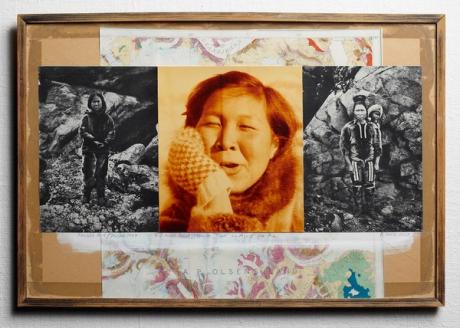
© » THEARTNEWSPER
A new wave: spate of UK exhibitions signal growing recognition for Inuit and Sámi art Art market Museums & heritage Exhibitions Books Podcasts Columns Technology Adventures with Van Gogh Search Search Exhibitions news A new wave: spate of UK exhibitions signal growing recognition for Inuit and Sámi art Shows in London, Southampton and St Ives are introducing a wider audience to the work of artists from the far north Alexander Morrison 7 February 2024 Share Pia Arke's Krabbe 1906/Jensen 1947 is an example of how the artist blended “the personal with the political” Courtesy and © Pia Arke Estate Two years on from the last major milestone, the push for representation of art from the far north appears to have reached another...





